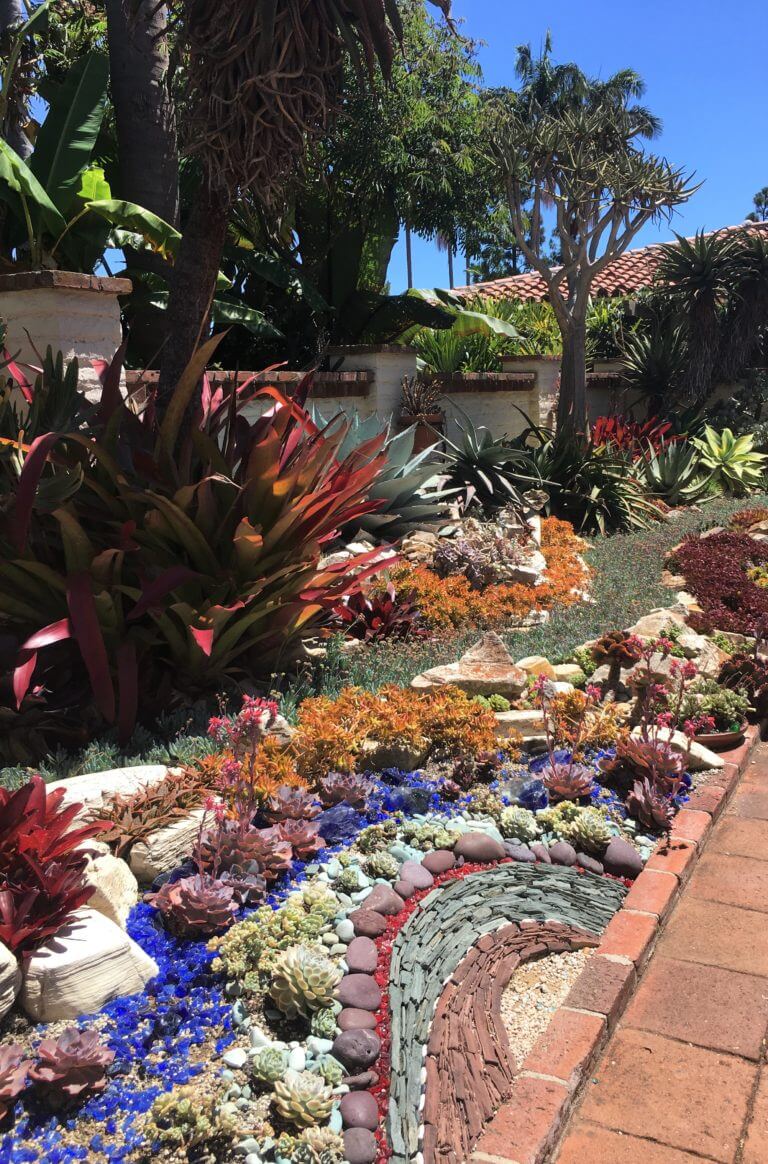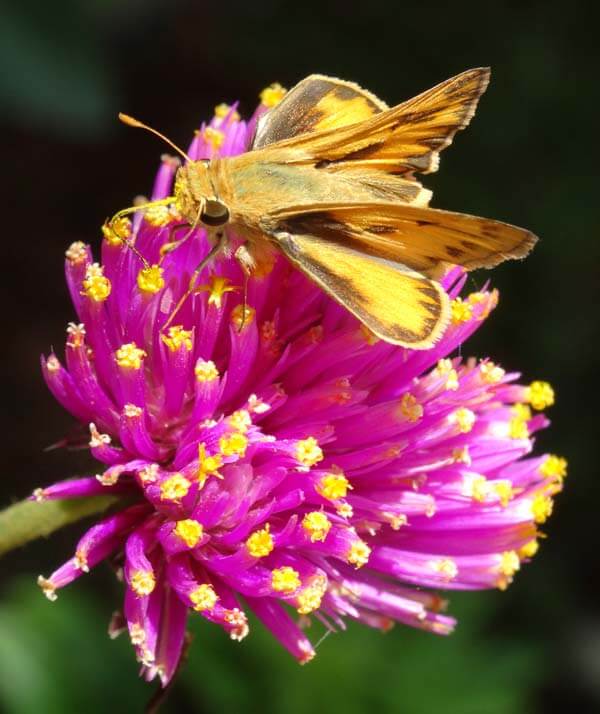Sherman Gardens is an inspiring horticultural oasis and nationally renowned botanical garden.
The Gardens’ collections include:
- Over 100 species of palms from around the world
- 130 unique varieties of begonias
- A lush tropical conservatory featuring a koi pond, carnivorous plants and an extensive orchid collection
- An artistic succulent garden
- A formal garden
- A tea garden with numerous hanging baskets of fuchsia, begonias, and seasonal favorites.
Visitors can explore the gardens along wide brick walkways winding past bubbling tile fountains and flower beds bursting with color, texture, and fragrance.

Our Commitment To the Environment
Ecological Horticulture
Ecological horticulture is a method of designing, building, and maintaining gardens that considers the ecology of a site and creates gardens that enhance the surrounding environment for the benefit of humans and all other life in the ecosystem.
When the earth is disturbed during the construction of buildings, homes, driveways, and roadways, the land is forever altered. Although the natural landscape can never be restored completely, with thoughtful attention to the site, ecological gardeners can create outdoor spaces that are practical, healthy, and aesthetically pleasing. Ecological gardening strives to balance the building site with the natural environment. It draws upon the wisdom of and is inspired by natural systems.
By studying the inter-relationships between living things, non-living things, and the environment, ecological gardeners can create a “garden community” that will conserve natural resources, preserve biodiversity, and protect the environment. With proper design and implementation, a healthy pattern begins to form with each component in the landscape; people, animals, plants, water, soil, insects, and wildlife, all interacting in a sustainable way.
Conservation is an important part of ecological gardening. The objectives of an ecological gardener are to reduce water consumption, preserve water quality, prevent soil erosion, protect biodiversity, diminish the use of toxic pesticides, and minimize the use of non-renewable resources. By striving toward these goals, the ecological gardener can create gardens that are both environmentally responsible and enjoyable to experience.
When ecological gardening is done right it will inspire others to follow, imitate, and create their own ecological gardens!
*Adapted from the Ecological Landscape Association


